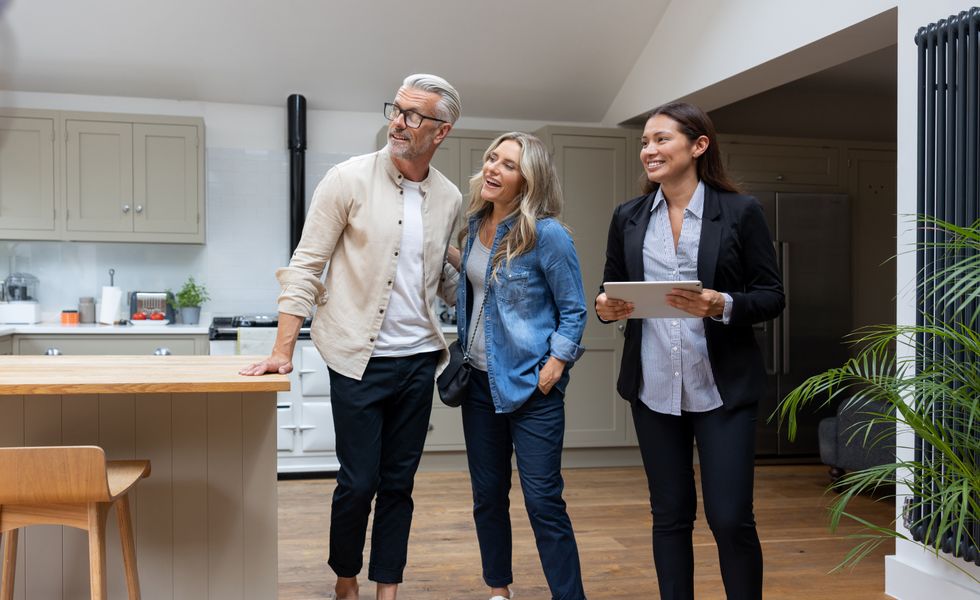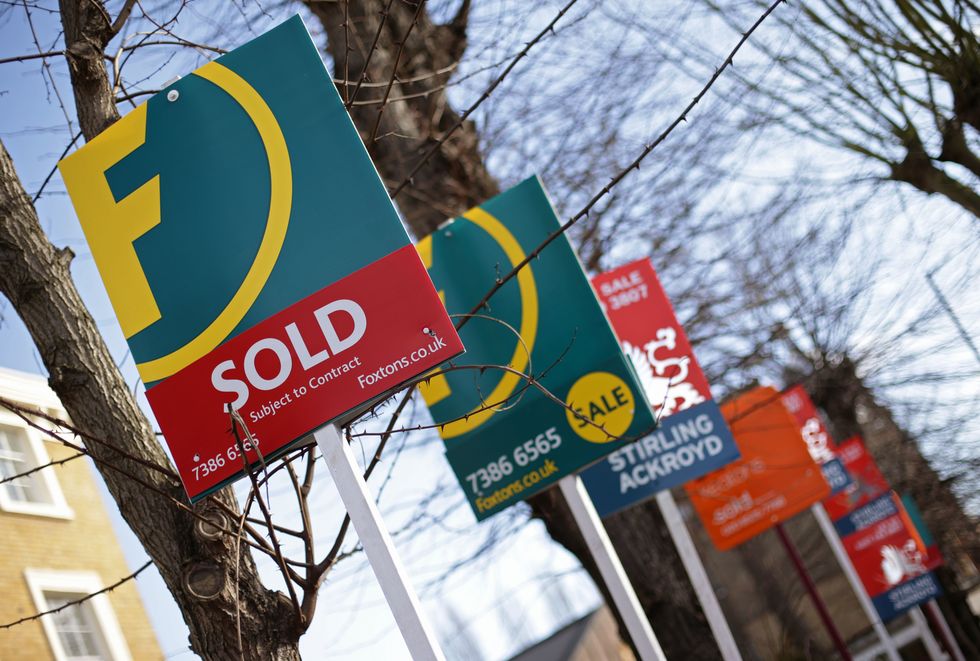Don't bid for a home until you've asked 10 essential questions, says property expert

Buyers should not buy until they ask 10 questions
| GETTYAs a study reveals buyers spend 20 minutes deciding on whether to bid for a home, property expert Jonathan Rolande shares the things you must ask first
Don't Miss
Most Read
Latest
A new survey has revealed home buyers spend just 20 minutes viewing a house before they make an offer on it.
The time, which is less than an episode of Eastenders, emerged in a study by Zoopla.
And it means they could be leaving themselves open to the risk of moving into a property with hidden problems. The 20 minute viewing times are a by-product of the current market.
Viewing times have become ever shorter post-Covid as people race to make a move and use online sources before booking a visit.

Look out for things that could cause problems in the future
| GETTYThe shorter viewings are really a result of a buoyant market where buyers feel pressured to act fast and agents don’t need to spend longer periods of time showing a single potential buyer around.
The amount of information online has also cut down on the amount of viewing time wasted on unsuitable properties.
It is now possible to look online for aerial views (look at the roof and neighbour’s garden), the streetscape, internal photos, the EPC, floor plan and neighbourhood information, such as school catchments and crime figures - the list is almost endless.
Agents now need to do far less than they once did. Another reason is the cost of repairs versus the price of property.
Although labour costs and the price of items like a new kitchen or gas boiler have increased recently, their rise has been far slower than the cost of a new home meaning that buyers can be far more relaxed about any repairs and renewals that may be required – even the price of major works can seem almost trivial compared to the capital value. That means there is a lot less to think about when viewing.
But one thing I would say is to never, ever, feel pressured into making a bid if you have unanswered questions. It’s always best to ask for a second viewing - or you could end up regretting it.
What to ask before a viewing
What are the neighbours like?
Ask the current owners about them and look at the neighbouring homes to ensure they are well kept. A bad neighbour can make life miserable, even in the nicest new home. Also, take a look on Google news to see if there are any stories about the street.
Are the inside walls cracked?
Anything more than a hairline fracture could indicate an issue. Check brickwork – cracking in the mortar (cement) is normal, but cracked bricks indicate issues. Check internal doors close well, if they don’t the house may have moved.
Is the water pressure OK?
Ask to turn on a tap to ensure the water pressure is adequate. If it isn’t can it be fixed?
Are the floors springy?
If they are it could indicate rotten timbers: so make sure you check.
Does something smell off?
Are there any smells of dampness or mould? Are there lots of dehumidifiers inside? Not a good sign.
LATEST DEVELOPMENTS

Potential buyers only take 20 minutes to decide if they want to make an offer
| GETTYHave you checked the manholes?
One that’s often missed. Do manhole covers look like they have been lifted recently? That can indicate drain trouble.
What's security like?
Do security measures appear to be excessive? It could indicate problems locally. Check local news reports again.
Does it have the power to run your life?
We now have so many devices - check if the number of plug sockets is adequate. They are cheap to add, but they can damage decorations which can make it a costly and inconvenient job.
Have you revisited?
Visit the house a second time at a different time of day, and pop back to the street at the weekend, rush hour, after school hours and evening - areas can change.
Have you looked up?
Try to check the loft. Some are like cathedrals with great potential for storage or even an extra room, and some are tiny and useless. It’s hard to tell externally.










